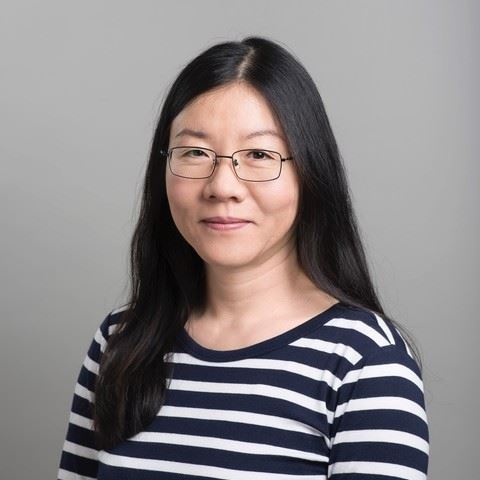Entangled and hyper-entangled photon pair generation in periodically poled silica fiber
Dr. Li Qian, University of Toronto

Abstract
Quantum entanglement is a fundamental resource in quantum communication, quantum computing, and quantum sensing. Entangled photon pair sources are therefore a crucial and indispensable component in quantum applications. Entangled photon sources based on nonlinear crystals or waveguides require bulky free-space optics and precision alignment. In contrast, fiber-based entangled photon sources, where entangled photon pairs are directly generated in an optical fiber, make quantum technologies less costly, more practical and accessible, as well as compatible with telecom fiber network infrastructure. In the past decade, we have been developing fiber-based entangled and hyper-entangled photon pair sources based on the periodically-poled silica fiber (PPSF). We demonstrate practical and high quality entanglement (>99% concurrence) sources at room temperature, compact and alignment free. The technology has now been commercialized and many well-known national laboratories in the world have used the polarization-entangled sources based on our technology. My talk will reveal the key technological advantages of using PPSF as a nonlinear material for entangled photon generation, as well as remaining challenges.
About the speaker
Li Qian is a professor at the Department of Electrical and Computer Engineering, University of Toronto, Canada, where she also earned her PhD degree. From 2000-2002, she was a senior development scientist at Corning, Inc., where she and colleagues developed the first commercial extended L-band erbium-doped fiber amplifiers. At the University of Toronto, her research focuses in both classical and quantum optics. In classical optics, her group develops advanced metrology and sensing systems, including the invention of the Frequency-Shifted Interferometer (FSI), which has been used for low-cost interrogation of large arrays of fiber sensors (up to thousands), and for cavity ring-down sensing, among others. Her group is also leading the work in dispersion measurements of optical fibers and components. In quantum optics, she does experimental research in fiber-based quantum cryptosystems. She and her collaborators have demonstrated the world’s first decoy-state quantum key distribution (QKD) system, as well as conducted pioneering research in quantum random number generation, measurement-device-independent QKD and twin-field QKD systems. She is also well-known for developing fiber-based entangled and hyper-entangled photon pair sources based on periodically poled silica fibres. This technology is now commercialized by OZ Optics. Prof. Qian won the University of Toronto Early Career Award in 2003, the Premier’s Research Excellence Award in 2004, and she was the Canada Research Chair in photonics technologies and applications (2006-2012). She won the Connaught Innovation Award in 2013 to commercialize a quantum random number generator. She is an editor of JOSA B, she has served on the committees of various conferences, including CLEO, QCRYPT, Photonics North, BGPP, etc. She has published over 100 journal papers and over 100 conference papers.
LLE COVID policy
Surgical, N-95 or KN-95 Masks are optional for fully vaccinated individuals in LLE facilities. Disinfectant wipes will be available for attendee use.
Pre-talk dinner
Pre-talk dinner
with guest speaker Dr. Li Qian will be held at 5:15 PM at King and I Cuisine of Thailand, 1455 East Henrietta Rd, Rochester NY 14623, prior to the talk. Contact the House Committee by email for dinner reservations. Email: house@opticarochester.org